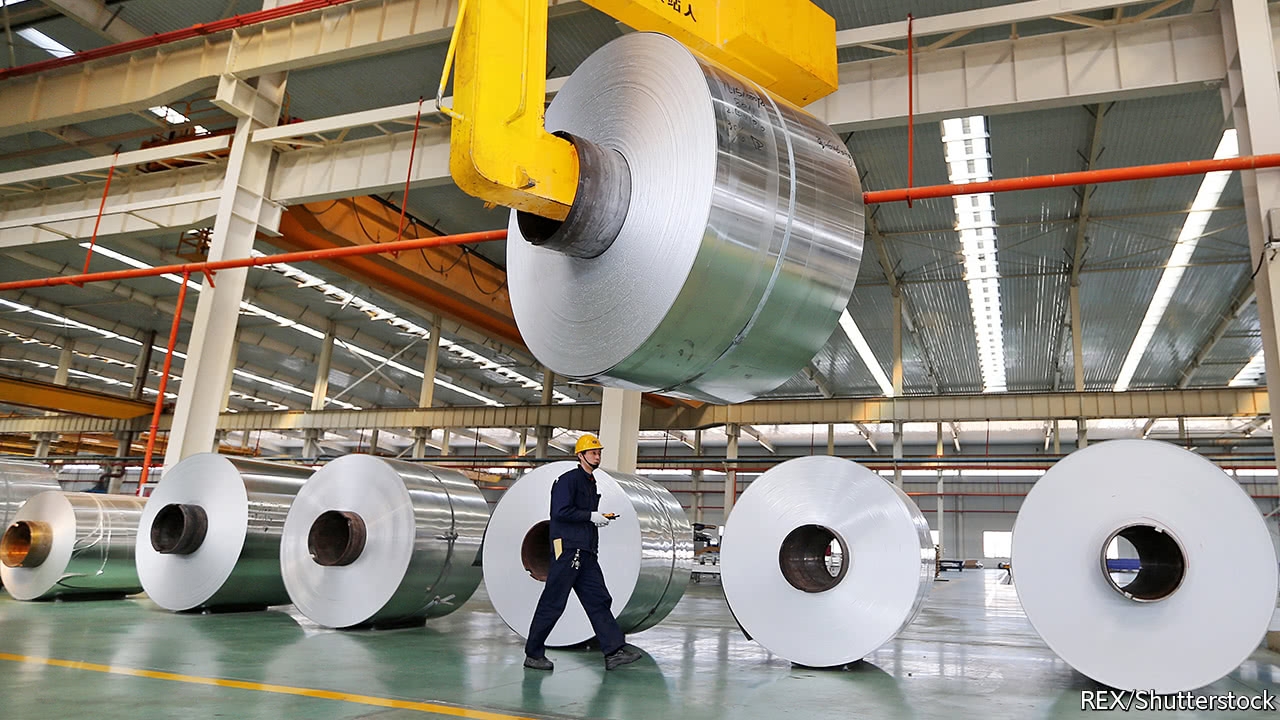
Supporters of the tariffs imposed by the Trump administration on steel and aluminum are making the case that they have worked as intended, without the huge job losses opponents had predicted.
“We found absolutely no evidence of broad, negative impacts on the economy of steel and aluminum tariffs to date,” said Robert E. Scott, senior economist at the Economic Policy Institute, who authored the report with support of the U.S. aluminum company Century Aluminum.
Ten percent tariffs on aluminum were announced in March. Since then, the institute note, three smelters have being restarted and one has announced a capacity expansion. It said the U.S. aluminum companies have added about 300 jobs, and companies that process aluminum into finished products have expanded, generating $3.3 billion in investments that could employ 2,000 more workers. Overall, U.S. manufacturing has added more than 200,000 jobs since just before the tariffs were put in place, according to the Labor Department’s November jobs report last week.
Tariffs collected on aluminum products increased by $124 million in October, despite a 4 percent decline in the value of imports, according to data released by Tariffs Hurt the Heartland and compiled by The Trade Partnership.
But the full effect of the higher costs and disrupted supply chains are still working their way through the economy, “It’s very easy to say ‘Ah, ha, these haven’t happened yet.’ … The last thing anyone wants to do is lay off workers,” said Dan Anthony, vice president at The Trade Partnership, an economic consulting firm that has done several studies of tariff impacts.
Pressure is growing for the administration to lift the tariffs on U.S. allies. In announcing its support for the USMCA trade agreement reached this year by the United States, Mexico and Canada, the U.S. Chamber of Commerce called for steel and aluminum tariffs to be removed.
“These tariffs — imposed on our partners as a negotiating tactic — have invited $15 billion in counter-tariffs on U.S. agricultural and manufactured goods,” U.S. Chamber President and CEO Thomas Donohue said in a statement. “They must be eliminated without delay.”
But supporters say there should be a period of time to verify that products are no longer sold here at artificially low subsidized prices.
“There are some important national security considerations,” said former Sen. Evan Bayh, D-Ind., who is working with the American Primary Aluminum Association. “I don’t think we ever want to be in a position where we have products that are essential to the United States military that are made from aluminum or steel entirely outsourced through foreign producers, that would put us at their mercy in time of conflict.”
Critics say there has been little evidence the tariffs are affecting overcapacity in China, which continues to subsidize its aluminum industry. Even supporters are concerned the blanket tariff approach may not be the most effective action.
“The remaining problem in the industry is this massive excess capacity based in China, and unfortunately, the way the tariffs are structured, they didn’t really address that issue head-on,” said Scott.